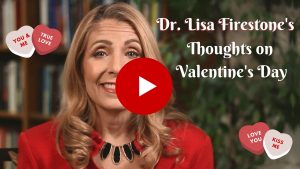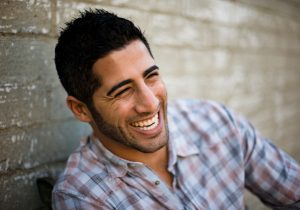Can Love be Learned?

Anyone who has indulged in romantic comedies like When Harry Met Sally, As Good as it Gets, Moonstruck or pretty much anything starring Sandra Bullock knows the theme of opposites attracting and enemies becoming lovers. This theme has been around since the beginning of time; We see it in Shakespeare’s Taming of the Shrew and Jane Austen’s Emma. Yet as much as many a film, novel or play would like us to believe it, we aren’t all that likely to fall in love with someone we initially cannot stand. But a new article begs the question, can we learn to fall in love with someone with whom we don’t initially feel that special “spark.”
Sure, attraction is necessary to starting any relationship, but how much do we depend on that initial attraction as a sign of lasting love? As a recent article by Dr. Robert Epstein puts it, “I don’t believe you can fall in love with absolutely anyone, but there are many people around us with whom we could very deliberately create lasting love.”
It may not seem that romantic: meeting someone, liking that person enough to give him or her a chance, then seeing whether strong feelings can develop toward that person. But Dr. Epstein’s article recommends we look at love a different way. In his interview with www.psychologies.co.uk, Dr. Epstein advises that we not be so passive in waiting for love to find us, to strike us with Cupid’s piercing arrow and overwhelm us with mental and physical attraction. Instead, he encourages people to be more open to love, more open to the flaws in our partners and less dependent on the notion that we have only one true soulmate. Dr. Epstein goes on to warn us that the more we idealize a partner in the early stages of a relationship, the more disappointed we will be to eventually discover this person isn’t as perfect as we’d imagined.
So how can we make the best choice for ourselves? How can we learn to fall in love and stay in love?
In the early stage of selecting a partner, it’s important to consider the ideal qualities we should look for in that partner that would lead to an ideal relationship. These qualities include maturity, non-defensiveness, honesty, empathy and a sense of humor (among others). When two people find these qualities in each other and make the choice to be together, they often possess strong feelings for each other that are very real to them: mutual respect, attraction and appreciation. By establishing that our partners possess these qualities, we can feel confident that we have made a high-level choice for ourselves and can feel more comfortable sharing life closely with that person.
Once a relationship becomes more serious, it’s important to be wary of the ways we can become overly critical toward our partners. As much as we all say we want love, there are many defenses we possess that protect us from allowing ourselves to fully experience love and allow it to remain in our lives. Old hurts, memories and systems we once used to protect ourselves can unconsciously resurface when we get close to someone.
These defenses can take the shape of an internal enemy. This enemy is always there to put us down and threaten to sabotage our happiness. Think of all the times a voice inside your head told you not to ask out someone you like, not to be vulnerable to your partner, not to trust someone you love or not to believe that you are cared about. This same “critical inner voice” that turns on us can turn on our partners. Try to be wary of this voice and separate your real feelings from those you may be projecting from old defenses.
The more we act on our defenses, the more likely we are to replace the real love we once felt for our partners with a more routinized and dulled manner of relating. We may take the actions associated with being in love like going out or moving in together, but as we do these things, we may not feel the same initial excitement we had toward our partners.
When we act on our defenses or listen to our critical inner voices, we are far less likely to remain vulnerable to those we love. We may protect ourselves with thoughts like: She never even thinks of me anymore, He’s not attracted to you, She’s going to leave you, so don’t get too close. Indulging in these thoughts can leave us distanced from our partners and our loving, attracted feelings. At the same time, we may not want to lose the security of being in a relationship, so we form what Dr. Robert Firestone refers to as a “fantasy bond.” The fantasy bond is an illusion of connection that allows us to maintain the form of a relationship, while losing our loving feelings toward our partners.
There are many ways to keep a relationship healthy and avoid the trappings of a fantasy bond. For one, we can have integrity in maintaining the ideal qualities in ourselves that support a healthy relationship. We can also be aware of the “critical inner voices” telling us to pull away from our loving feelings. Lastly, we can look for signs we are engaging in a fantasy bond and actively seek to interrupt these patterns.
Click here to read Dr. Epstein’s article “Can You Learn to Love Anyone?”









This article really called to me, especially about how we may be acting lovingly towards our partners but still have these critical voices that stop us from getting close. I liked what you said about our voices turning on them. I have relationship anxiety and im curious about how we can start to believe these voices as critical ones to start to change them. I feel like it’shard to believe its not about my partner but am working on this as i know the anxiety lives within me.